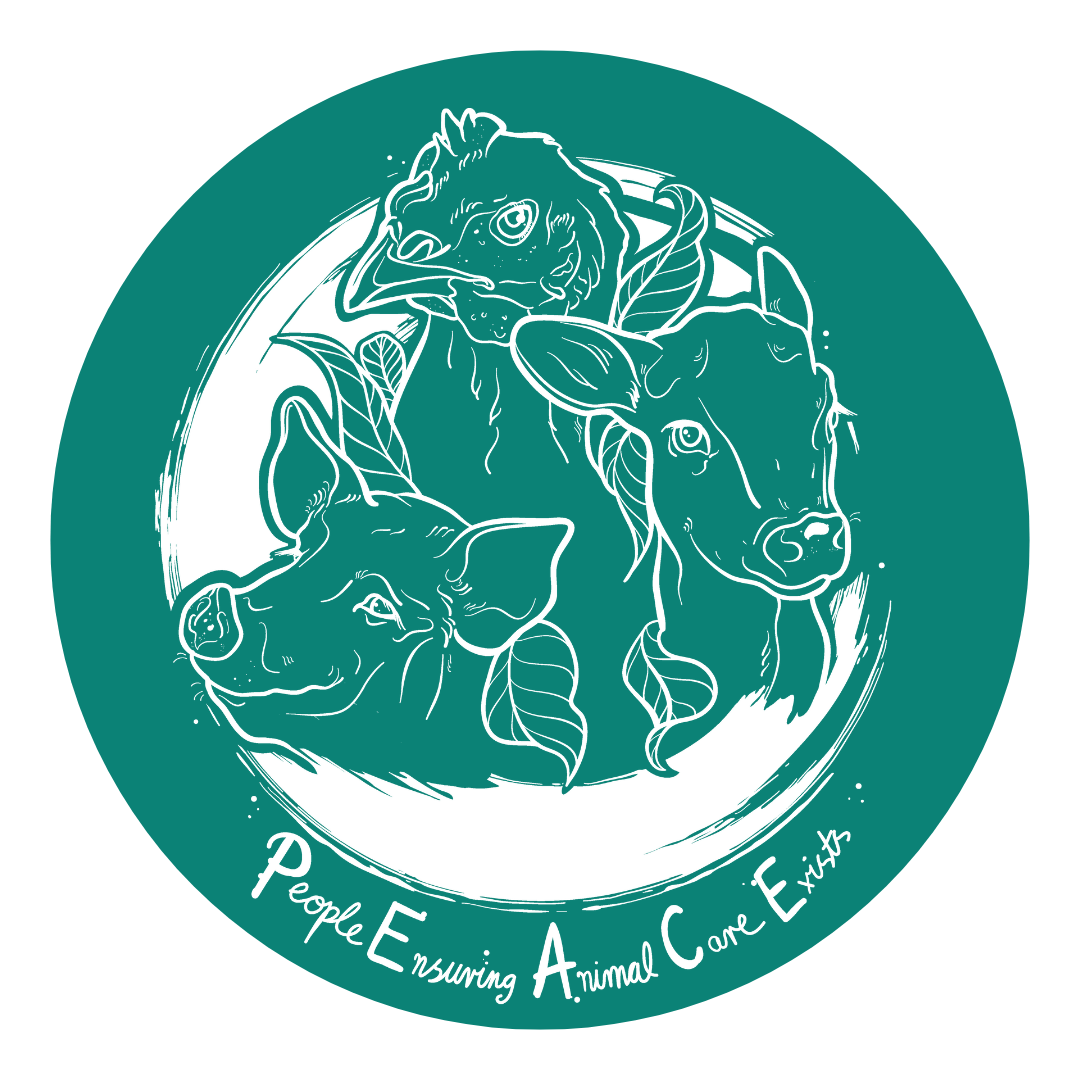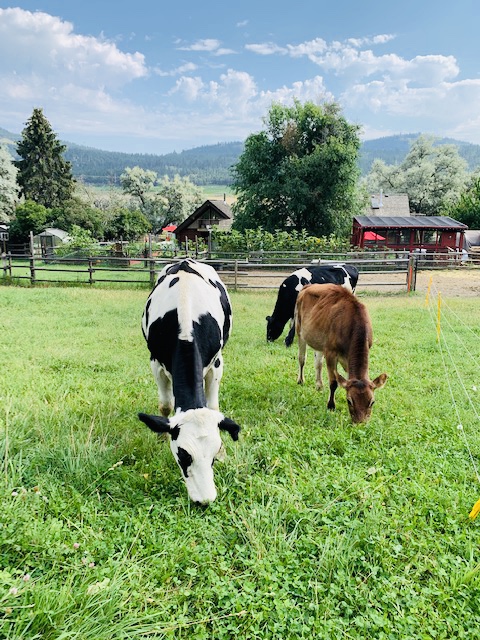Article By Taryn Szedlak
Jaye Dueck, the founder of Eden’s Way Farm Sanctuary, has been vegan for over 10 years and vegetarian since she was 12 years old.
She grew up on a cattle ranch in Northern Alberta and was involved in 4-H for horses and cattle. Having to sell her steer at the end of each year was devastating and when she realized where many of the cattle went, she made the switch to becoming vegetarian.
Jaye says she didn’t know very much about dairy cattle and would consume dairy based upon the idea that it’s humane to consume what animals naturally produce; until she realized there is nothing humane about the it. “Over the years, my understanding of veganism and its implications for animals, our health, and the environment has grown.” says Jaye.
Having grown up on a farm, Jaye has always loved animals and had been missing farm life after she moved to BC for university. She started dreaming of starting a sanctuary in 2014 but says it seemed a little crazy. She had a well-established career as a psychologist and was settled into city life. But she decided to pursue her dream and moved to Abbotsford, BC where she volunteered at Happy Herd Farm Sanctuary.
“Then over the next couple of years, I went through a number of significant life changes, which included getting married to someone who was willing to risk everything to have our dreams merge and then actually have them come true,” says Jaye.
When Jaye met her husband, he became vegan for her, “solely as an act of honour and respect, and then making that choice for himself as he learned more about industrial agriculture”. With no farm experience, he risked his own career to start a sanctuary with Jaye.
“After moving to our farm, he jumped right in and he has risen to every challenge. Every day, he helps with taking care of the animals and he endlessly works on repairs, renovations, and anything else that he can help with. Through and through, he has been my emotional rock”, says Jaye.
In February 2019, Jaye and her husband found a hobby farm for sale in Kamloops, BC, facing the South Thompson River. They took ownership of the property, along with 4 rescue rabbits, 2 peacocks, 1 peahen, a dog, and a cat that the previous owners had left. From there, Jaye’s dad brought 2 rescue horses from Alberta and on day 5, Jaye had rescued two Holstein dairy calves.
That same year, they took in 3 goats, 2 sheep, and 2 rabbits that needed to be rehomed from other sanctuaries, and an abandoned rooster and 2 bunnies. But Jaye’s most memorable and heartbreaking rescue was of a dairy cow, mother to a Jersey calf named Ezekiel that had come to Eden’s Way late in 2019. “I got this idea of trying to rescue her and imagined what it would be like to give freedom to an enslaved cow and have her reunited with her last calf”.
Jaye contacted P.E.A.C.E., who also facilitated the rescue and transport of Ezekiel, to see if it would be possible to also rescue her. “I was overjoyed when I found out that she would actually be released to us, and we then waited in great anticipation over the next several months. I even had picked a name for her – Esther Theodora”.
When Esther arrived home to Eden’s Way, she was defeated, lame, and underweight. She was almost 10 years old. This is practically unheard of for a dairy cow as they are typically slaughtered between the ages of 5 to 6 years old, as their milk production drops. Esther had 6 calves in her life with Ezekiel being her last. She started to flourish initially, but with a severe hoof infection and arthritis, Esther began to decline.
Two independent veterinarians recommended that she be euthanized as there was nothing more that could be done. Jaye and her husband kept Esther as comfortable and content as possible until all the arrangements could be made. On November 26, 2020, Esther passed away peacefully. “I am comforted and thankful for being able to be a part of saving her and being able to give her a new chance at life for almost 3 months. And because of my faith, I believe, Esther Theodora Frederica is fully alive, healed, and free and that she lives on with us, now and forevermore,” Jaye says.
Jaye has learned that starting a sanctuary takes a lot of time and resources, so she suggests volunteering and starting slow. “Running a farm sanctuary is also physically and emotionally demanding, and it can be quite isolating, so it’s also important to build community support around you and make sure you maintain your own self-care”. Jaye continues to work full time, and while they have not been able to continue on-site tours due to the COVID-19 pandemic, they have many plans for the future.
They want to expand their capacity to rescue more animals. With the land beside them becoming available, that is a possibility. “We were careful to not take in more animals than we could responsibly take care of both financially and from a space perspective. So, over the last year, we have only been able to take in another dairy calf and then this fall, we were able to save his mother, and 2 rescued hens”.
Eden’s Way Farm Sanctuary was registered as a non-profit organization in September of 2020 and they hope to become a registered charity in 2021. They also plan to unfold various programs to the public– such as volunteering, fundraising, humane education, and community outreach that can promote compassion and concern for farmed animals. She says farmed animals are sentient beings who feel, think, and sense just like other animals that we have been socialized to view as pets.
“Just like our family dogs or cats, farm animals have unique personalities. They form social bonds with each other and with people, and just like to be who they were created to be. Yet farmed animals experience profound suffering and cruelty that people would never tolerate in animals considered as pets,” says Jaye.
Jaye wants to encourage non-vegans to reflect on their own personal and cultural beliefs around their food choices and animals, to become more educated on the agricultural industry and the broken food system, to spend some time learning about and interacting with farmed animals, and to consider the idea that the most impactful choice one can make to reduce farmed animal suffering is to stop consuming and using animal products.

